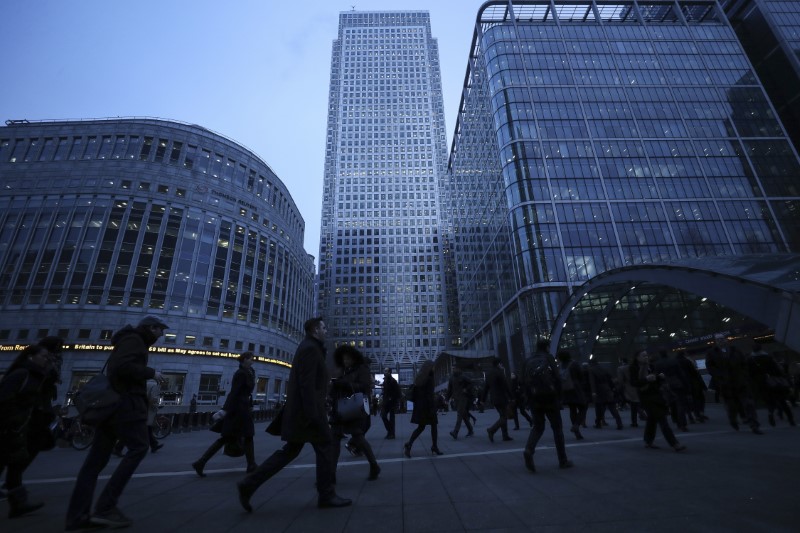LONDON (Reuters) - Most British companies do not expect to offer more generous pay deals to employees this year compared with 2016, adding to signs that higher inflation will gnaw at Britons' living standards in the months ahead, a survey showed on Thursday.
Private sector employers on average expect to give pay awards of 2 percent for the coming year, similar to last year, human resources consultants XpertHR said.
Only 30 percent of companies forecast they will give a bigger pay rise than in 2016.
The outlook for wage growth is critical for Britain's economy as it begins the process of leaving the EU. Consumers kept up their spending after June's Brexit referendum shock but there have been signs that they are turning more wary.
XpertHR's figures follow official data on Tuesday that showed a stronger rise in inflation than expected.
Retail price inflation - an older measure of price rises that is still referenced in pay deals across Britain - hit 3.2 percent in February, its highest since August 2013.
"With RPI inflation rising, most employees are facing the prospect of a below-inflation pay award this year," said XpertHR pay and benefits editor Sheila Attwood.
Official data last week showed annual pay growth, adjusted for consumer price inflation, fell to 0.7 percent in the three months to January, its lowest since October 2014.
Declining real wage growth has contributed to souring sentiment among consumers. Figures from polling company YouGov and economics consultancy CEBR on Thursday showed a fall in sentiment, with morale weaker than before the Brexit vote.
"Employees are becoming more nervous about their levels of job security over the coming year," CEBR director Scott Corfe said. "Should inflation continue to rise, household finances - steady at the moment - could start to weaken."
Weak pay growth is likely to convince most Bank of England policymakers to keep borrowing costs at their record low for longer, despite the pick-up in headline inflation.
But last week one BoE's policymaker voted to raise record-low borrowing costs because of growing inflation pressures and the economy's resilient response so far to Britain's decision last June to leave the European Union.

Other policymakers said they could soon follow suit, depending on inflation and growth data.